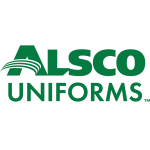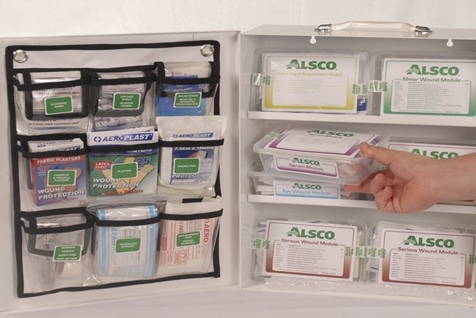Identifying the type of risks prevalent in your workplace plays a big part in knowing the right number of First Aiders you need, and type of training they need. Through these five steps, you can assess what is needed to achieve compliance:
- Step 1: What is the maximum number of workers present at any one time?
- Step 2: What kind of work is being carried out? Does it place your workers at high risk to require immediate first aid treatment?
- Step 3: Is the workplace remote, or access to emergency services difficult? High risk workplaces with difficult access need at least one First Aider per 10 workers.
- Step 4: How is work carried out: alone, in transit, or without supervision? If having a First Aider available at all times is impractical, workers must be able to access First Aid assistance, through an effective means of contacting emergency services, getting appropriate information, instruction and training.
- Step 5: Finally, what other factors affect the number of First Aiders needed? For example: multiple shifts or overtime; seasonal work; large numbers of people present (schools, shopping centres); unique hazards (fitness centres, amusement parks); holidays and annual leave.
First Aid Kit: Code of Practice
There is no denying that the Work Health and Safety (WHS) Act has many facets, all of which need to be adhered to if a business is to comply with the new regulations. The problem is keeping up with the finer details. To help businesses in this matter, a code of practice has been drawn up by Safe Work Australia.
First Aid in the Workplace: Code of Practice sets out clearly everything businesses owners and PCBUs need to know, effectively removing any confusion there may be. It provides information on a risk management approach ensuring the specific system is tailored to the specific risks and hazards in their workplace.
A synopsis of the points it covers includes some points covered in a previous Green Room post here. But as well as the expected points, like:
- The required contents of First Aid Kits
- The size and capacity of the kits
- The ideal locations for them
- There are also details provided on kit maintenance, additional equipment required, and the First Aid facilities expected.
Maintaining Kits
A person in the workplace should be nominated to maintain the first aid kit (usually a first aider) and should:
- Monitor access to the first aid kit and ensure any items used are replaced as soon as practicable after use
- Undertake regular checks (after each use or, if the kit is not used, at least once every 12 months) to ensure the kit contains a complete set of the required items (an inventory list in the kit should be signed and dated after each check)
- Ensure that items are in good working order, have not deteriorated and are within their expiry dates and that sterile products are sealed and have not been tampered with.
Other First Aid Equipment
In addition to First Aid Kits, you should consider whether any other first aid equipment is necessary, like Automatic Defibrillators or Eye Wash and Shower Equipment.
- Automatic Defibrillators
Providing an Automatic Defibrillator can reduce the risk of fatality from cardiac arrest and is a useful addition for workplaces where there is a risk of electrocution, or where there are large numbers of members of the public.
Automatic defibrillators are designed to be used by trained or untrained persons. They should be located in an area that is clearly visible, accessible and not exposed to extreme temperatures. They should be clearly signed and maintained according to the manufacturer’s specifications.
- Eye Wash and Shower Equipment
Eye wash and shower equipment may be permanently fixed or portable, depending on the workplace. Eye Wash equipment should be provided where there is a risk of hazardous chemicals or infectious substances causing eye injuries.
Easy access to shower equipment should also be provided in workplaces where there is a risk of:
- Exposure to hazardous chemicals resulting in skin absorption or contamination from infectious substances
- Serious burns to a large area of the face or body (including chemical or electrical burns or burns that are deep, in sensitive areas or greater than a 20 cent piece)
Shower facilities can consist of:
- An appropriate deluge facility
- A permanently rigged hand-held shower hose
- A portable plastic or rubber shower hose that is designed to be easily attached to a tap spout – for small, relatively low risk workplaces where a fixed deluge facility would not be reasonably practicable but the risk of serious burns is still foreseeable (a fish and chip shop).
First Aid Facilities
Facilities must be sufficient to cope with whatever demands might be placed on the first aiders in the event of a major accident – however unlikely that may seem to be. A risk assessment will help determine the type of First Aid facilities needed. For example, a clean, quiet area within the workplace that affords privacy to an injured or ill person may be suitable and practicable for some workplaces.
Access to a telephone for contacting emergency services or an emergency call system should be provided as part of all First Aid facilities.
First Aid Rooms
A First Aid room should be established where there is a higher risk of serious injury or illness occurring that would not only require immediate first aid, but also further treatment by an emergency service.
A first aid room is recommended for
- Low risk workplaces with 200 workers or more
- High risk workplaces with 100 workers or more
First Aid rooms should suit the hazards specific to the workplace, and should allow easy access and movement of injured people supported or moved by stretcher or wheelchair.
A First Aid room should
- Offer privacy via screening or a door
- Be easily accessible to emergency services (minimum door width of 1 metre for stretcher access)
- Be well lit and ventilated
- Have an appropriate floor area (14 square metres as a guide)
- Have an entrance that is clearly marked with first aid signage
Maintaining a first aid room should be allocated to a trained occupational First Aider, except where this room is part of a health centre or hospital.
Health Centres
Health centres staffed by a registered health practitioner (a doctor or nurse) or paramedic can provide emergency medical treatment and cater to the types of hazards in high risk workplaces.
The facility should
- Be self-contained
- Be located at ground level where possible in a quiet, clean area that is a safe distance from hazardous operations and clear of any general thoroughfare
- Be convenient and accessible to workers at the times that they work and have an entrance clearly marked with health centre signage
- Have walls, floors and ceilings that are made of impervious materials and are easy to clean
- Have enough space to accommodate first aid equipment
Are You Compliant? We’ll Audit Your Business to Make Sure You Are!
Alsco’s 2012 First Aid Compliance Guide conforms to the health and safety laws now applied across Australia, and gives you the best guidance in complying to them.
Of course, many of the basic principles of ensuring safety in the workplace have not changed. So, if your business was compliant with the previous regulations as they relate to the provision of First Aid kits, there are few changes that you need to make.
Certainly, we at Alsco are more than happy to help you meet the new First Aid kit requirements.
If you’re not completely sure whether your company complies fully with the current WHS guidelines for providing First Aid kits in your workplace? Give our friendly team a call on 1300 077 391 for a free, no-obligation First Aid Audit.
ALSCO’s Fully Managed First Aid Kits
Many businesses like to buy their First Aid equipment, including their kits, but with WHS Act stipulating a need to properly manage and maintain First Aid Kits, the sensible option is clearly to hire professionals to maintain equipment and supplies.
Alsco’s fully managed First Aid rental program means everything is taken care of, leaving you with nothing to worry about. You can be confident the First Aid supplies you need will be there every time they are needed.
Our managed rental service includes:
- Agreed maintenance schedule by our friendly, professional team with a proven service record. Use our experience and expertise as a reference point to support you.
- High quality “hospital grade” first aid supplies that are never out of date
- Peace of mind knowing that all your first aid kits are auditable to OH&S guidelines, using both log books and our state of the art electronic tracking system
- Sturdy, highly visible, wall-mounted cabinets for immediate identification and ease of access – for first aid kits, AEDs and eyewash stations.
- Easy budgeting and cashflow management with a flat fee, inclusive of all services and consumables
- Each item in Alsco’s First Aid Kits are colour coded for specific injuries, ensuring you select the correct first aid kit for your required situation.
- A removable door liner is exchanged each service.
- Well labelled, transparent packaging allows you to find the right supplies when you’re in a hurry.
- A service card in each cabinet is used to log service dates.
- Each kit has a logical, standard layout that makes it simple and easy to use.
Seriously, call Alsco right now! Act quickly and prioritise safety.


LEAVE A REPLY
Your email address will not be published. Required fields are marked *
You must be logged in to post a comment.